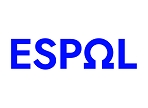FORMATIONS |
Fiche détaillée d'un cours
 | International Organisations | ||
2023-2024 | FrESPOL European School of Political and Social Sciences
(
ESPOL
)
| ||
Code Cours : | 2324-ESPOL-POLS-EN-2028 | ||
| Niveau | Année de formation | Période | Langue d'enseignement |
|---|---|---|---|
| S4 | FrAnglais |
| Professeur(s) responsable(s) | SARAH PERRET |
|---|---|
| Intervenant(s) | Pas d'autre intervenant |
- Ce cours apparaît dans les formations suivantes :
- ESPOL - Licence 2 de Relations Internationales - S4 - 3 ECTS
Pré requis
None
Objectifs du cours
This course gives students a theoretical framework and a better understanding of the issues at stake in cooperation and multilateralism, and the different approaches and transformations at work in the 21st century.
Contenu du cours
International organisations are very varied and have responsibility for a wide range of functions (economy, security, humanitarian aid, environment, sport, health, etc.). What they have in common, however, is the collective will of a group of stakeholders to combine their efforts in order, ideally, to maximise the success of their objectives (interests and/or values). For a long time, international organisations were seen as intergovernmental institutions, but their recent development has shown that civil actors are playing a growing role and that they are subject to the interplay of interdependent actions. In this course, we will focus more specifically on how cooperation is institutionalised, how it evolves and what impact and role it plays in international relations. We will examine their historical origins, apparent functions, the international and domestic political forces that impact their operations, and their effectiveness. The course will assess the ability of IOs to deal with central issues to international relations, such as collective security, peacekeeping, the protection of human rights, international criminal justice, development, the regulation of migration or environmental protection.
OUTLINE
I- The emergence of international organisations: a historical and theoretical introduction (3 sessions)
II- Global IOs: Focus on the UN system (2 sessions)
III- Regional IOs (2 sessions)
IV- Other IOs and the evolutions of multilateralism (2 sessions, with 1 Guest speaker)
Modalités d'enseignement
Organisation du cours
Based on interactive Lecture introduced by a collective discussion linking the course of the day with current international events.
Students should prepare a quick press review for each session.
Course Assessment: 1 Final Exam (100%)
Méthodes pédagogiques
Évaluation
Examen : coeff. 3
Bibliographie
The mandatory readings for each session will be indicated during the introductory session.||
- Badache F., Kimber L., Maertens L. (Eds) (2023), International Organizations and Research Methods: An Introduction, University of Michigan Press.
- Badie B. & Devin G. (dir.), Le multilate´ralisme. Nouvelles formes de l’action internationale, La De´couverte, 2007.
- Barnett M. & Finnemore M. (1999), ‘The Politics, Power, and Pathologies of International Organizations’, International Organization , Volume 53 , Issue 4 , Autumn 1999 , pp. 699 – 732.
- Bennett A. L. & Oliver J. (2002), International Organizations: Principles and Issues, 7th Edition, New Jersey : Prentice Hall, Upper Saddle River.
- Cogan J.K., Hurd I., Johnstone I. (Ed.) (2016), The Oxford Handbook of International Organizations, Oxford University Press.
- De Pryck K. (2022), GIEC, La voix du climat, Paris: Les Presses de Sciences Po.
- Devin, G. (2016), Les organisations internationales, Paris: Armand Colin.
- Katzenstein P.J., Keohane R. O., Krasner S.D. (1998), « International Organizations and the study of World Politics », International Organization, 52 (4), p. 645-685.
- Keohane R. (1984), After Hegemony: Cooperation and Discord in the World Political Economy, Princeton University Press.
- Keohane R. and Martin L. (1995), ‘The Promise of Institutionalist Theory’, International Security, Vol. 20, No. 1, pp. 39-51.
- Mearsheimer J. (1995), ‘The False Promise of International Institutions’, International Security, Vol. 19, No. 3, pp. 5-49
- Kratochwil F. & Ruggie J. G. (1986) ‘International Organization: A State of the Art on an Art of the State’, International Organization 40 (4): 753–775.
- Louis M. & Maertens, L., Why International Organizations Hate Politics. Depoliticizing the World, Routledge, 2021.
- Reinalda, B. (dir.), Routledge Handbook of International Organization, Routledge, 2013.
- Wendt A. (2003), ‘Why a world Sate is inevitable’, European Journal of International Relations, 9(4), 491-542.
Ressources internet
- International Organization (Scientific Journal) : https://www.cambridge.org/core/journals/international-organization
- Yearbook of International Organisations (Union of International Associations) : www.uia.be
- IFRI, Institut franc¸ais des relations internationales (https://www.ifri.org)
- IRSEM, Institut de recherche strate´gique de l’e´cole militaire (http://IRSEM.fr)
- GRAM, Groupe de recherche sur l’action multilate´rale (https://gram.cnrs.fr)
* Informations non contractuelles et pouvant être soumises à modification


















































































